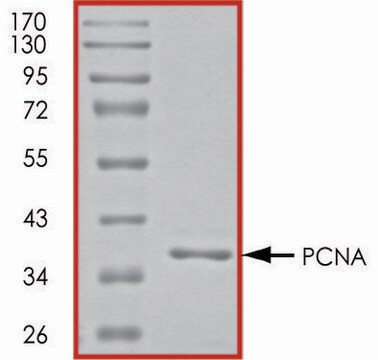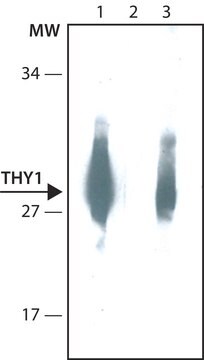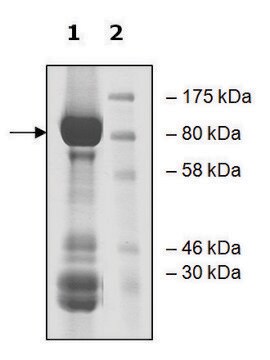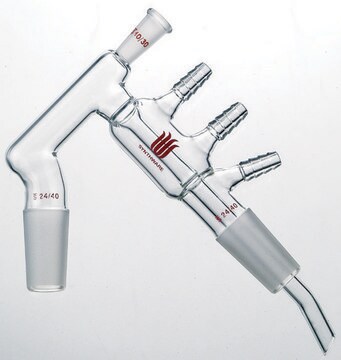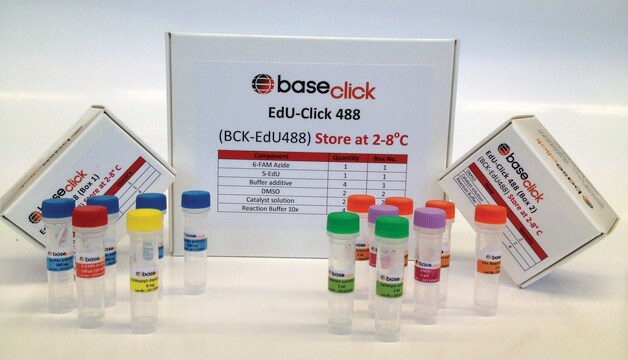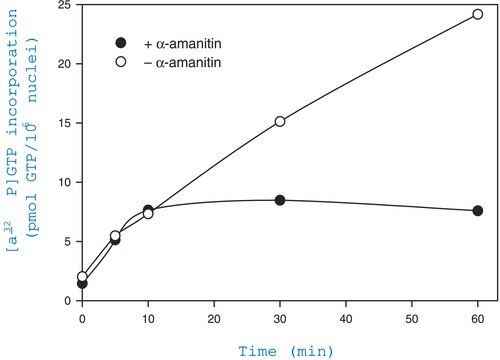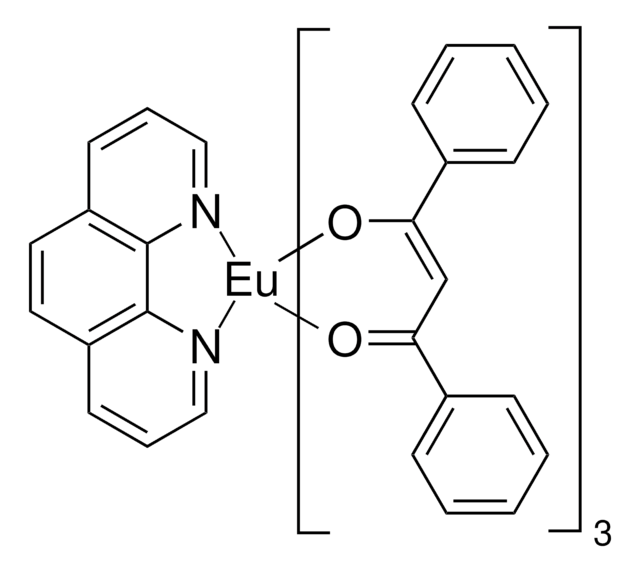SRP4835
PCNA human
recombinant, expressed in baculovirus infected Sf9 cells, ≥90% (SDS-PAGE), ≥90% (HPLC)
Sinónimos:
Cyclin, MGC8367, PCNA, Proliferating cell nuclear antigen
Iniciar sesiónpara Ver la Fijación de precios por contrato y de la organización
About This Item
UNSPSC Code:
12352202
NACRES:
NA.32
Productos recomendados
biological source
human
recombinant
expressed in baculovirus infected Sf9 cells
assay
≥90% (HPLC)
≥90% (SDS-PAGE)
form
liquid
mol wt
~29.8 kDa
packaging
pkg of 5 μg
impurities
endotoxin, tested
NCBI accession no.
shipped in
dry ice
storage temp.
−70°C
Gene Information
human ... PCNA(5111)
General description
PCNA (proliferating cell nuclear antigen) gene is mapped to human chromosome 20p12.3 and encodes a scaffolding protein. PCNA is a homotrimeric protein known to localize in the nucleus. The PCNA ring has a central cavity that is large enough to allow the dsDNA to slide freely along it.
Biochem/physiol Actions
Proliferating cell nuclear antigen (PCNA) has its main function in DNA replication and repair mechanism. Itsignificantly maintains the longevity of mature neutrophil granulocytes. Upregulation of the PCNA gene is observed in cervical squamous cell carcinoma. PCNA supports cell survival by elevating metabolism flux. This gene expression is known to offer resistance to chemotherapy. Expression of PCNA or cyclin or polymerase delta auxiliary protein is elevated in the nucleus during late G1 phase immediately before the onset of DNA synthesis, becoming maximal during S-phase and declining during G2 and M phases. PCNA/cyclin may act as an auxiliary protein of DNA polymerase-delta to play a fundamental role in the initiation of cell proliferation. Recombinant PCNA was expressed with a 6x His tag in sf9 insect cells and purified by proprietary chromatographic techniques.
Physical form
Sterile filtered; 5 μg/5 μl in 50 mM Tris-Acetate, pH 7.5, 1 mM EDTA, and 20% Glycerol.
Reconstitution
Centrifuge the vial prior to opening. Avoid freeze-thaw cycles.
Certificados de análisis (COA)
Busque Certificados de análisis (COA) introduciendo el número de lote del producto. Los números de lote se encuentran en la etiqueta del producto después de las palabras «Lot» o «Batch»
¿Ya tiene este producto?
Encuentre la documentación para los productos que ha comprado recientemente en la Biblioteca de documentos.
Fahad R Ali et al.
Development (Cambridge, England), 141(11), 2216-2224 (2014-05-14)
Generation of neurons from patient fibroblasts using a combination of developmentally defined transcription factors has great potential in disease modelling, as well as ultimately for use in regeneration and repair. However, generation of physiologically mature neurons in vitro remains problematic.
Simran Kaushal et al.
Cell reports, 27(4), 1151-1164 (2019-04-25)
Common fragile sites (CFSs) are genomic regions that display gaps and breaks in human metaphase chromosomes under replication stress and are often deleted in cancer cells. We studied an ∼300-bp subregion (Flex1) of human CFS FRA16D in yeast and found that
Cytoplasmic proliferating cell nuclear antigen connects glycolysis and cell survival in acute myeloid leukemia
Ohayon D, et al.
Scientific reports, 6, 35561-35561 (2016)
Junko Odajima et al.
PLoS genetics, 12(11), e1006429-e1006429 (2016-11-10)
E-type cyclins (cyclins E1 and E2) are components of the cell cycle machinery that has been conserved from yeast to humans. The major function of E-type cyclins is to drive cell division. It is unknown whether in addition to their
Proliferating cell nuclear antigen prevents trinucleotide repeat expansions by promoting repeat deletion and hairpin removal.
Beaver JM
DNA Repair, 48, 17-29 (2016)
Nuestro equipo de científicos tiene experiencia en todas las áreas de investigación: Ciencias de la vida, Ciencia de los materiales, Síntesis química, Cromatografía, Analítica y muchas otras.
Póngase en contacto con el Servicio técnico